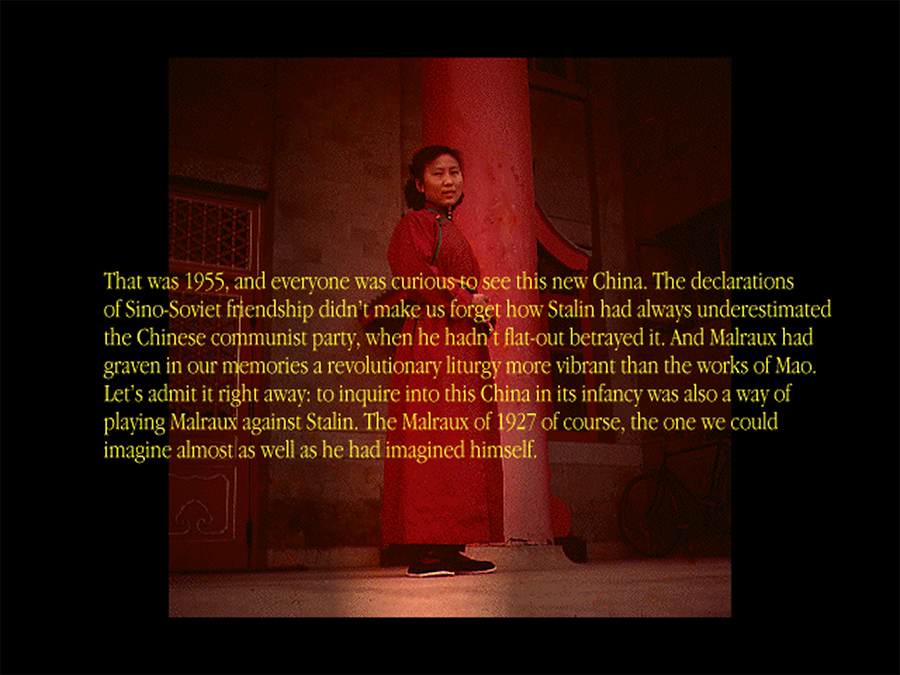china2 stack006

- Id : 726
- Catégorie : PHOTO
- Séquence : China2
- Card : china2 stack006
Navigation :
Médias :
No clipNo sound
Text :
That was 1955, and everyone was curious to see this new China. The declarations
of Sino-Soviet friendship didn't make us forget how Stalin had always underestimated
the Chinese communist party, when he hadnt flat-out betrayed it. And Malraux had
graven in our memories a revolutionary liturgy more vibrant than the works of Mao.
Let's admit it right away: to inquire into this China in its infancy was also a way of
playing Malraux against Stalin. The Malraux of 1927 of course, the one we could
imagine almost as well as he had imagined himself.